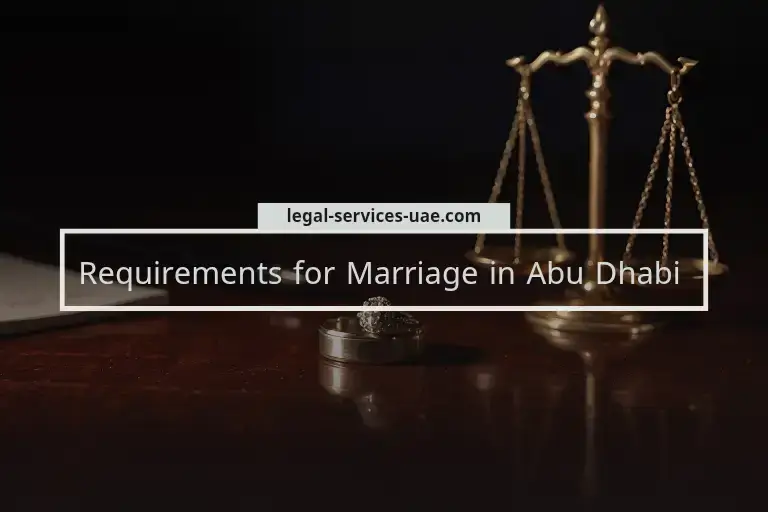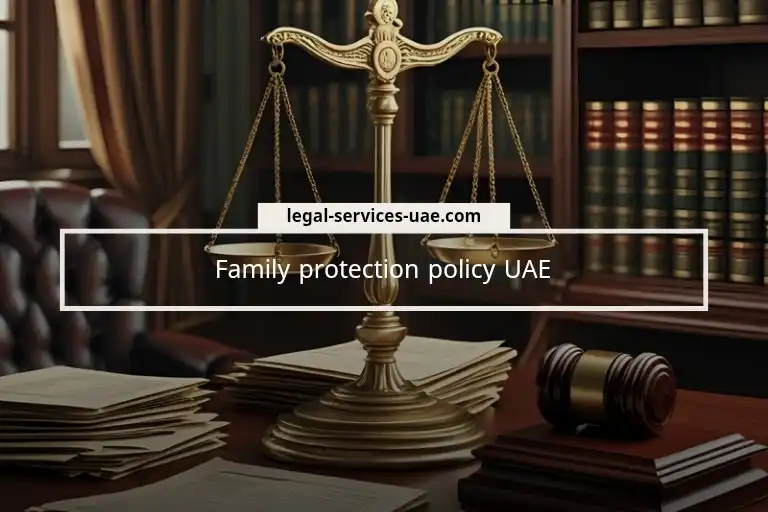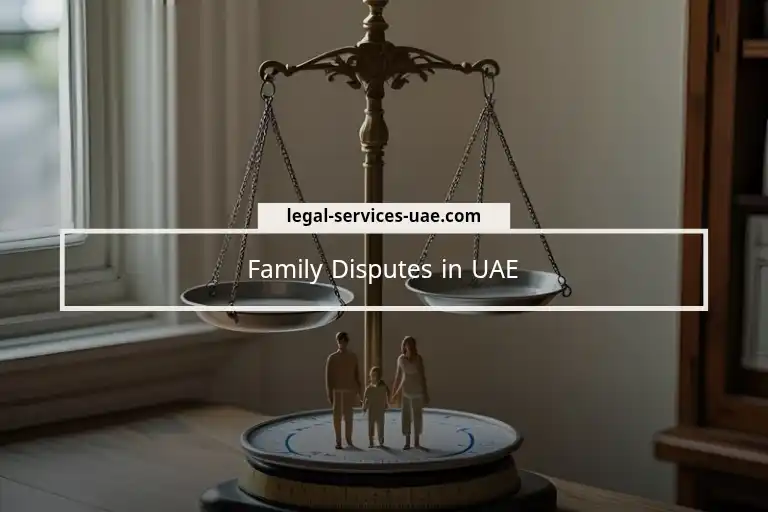A young Emirati man and his European fiancée once visited our office, anxious about whether their union would be valid in the UAE. They had heard of paperwork hurdles, embassy attestations, and even the need for court approvals. This real-life scenario reflects a common challenge: couples eager to marry but unsure of the exact requirements for marriage in Abu Dhabi.
If you are planning to wed in the capital, knowing the right procedures is essential to avoid costly mistakes and delays. With the right legal guidance, you can ensure your marriage is both locally recognized and internationally valid.
For tailored advice, click on the WhatsApp icon below to connect with our Top Lawyers in Abu Dhabi
فهرس المقال
Legal Framework for Marriage in Abu Dhabi
Before diving into paperwork of the requirements for marriage in Abu Dhabi, it’s important to understand the legal structure that governs marriage in Abu Dhabi. This framework ensures that all unions comply with federal law while respecting the diversity of residents.
Governing Laws
Several key legislations shape the marriage process in Abu Dhabi:
- Federal Decree-Law No. 41 of 2024 regarding Personal Status, which applies to UAE citizens and Muslim residents, and regulates family affairs, including marriage and its effects, divorce and khul’, custody, alimony, and inheritance.
- Federal Decree-Law No. (41) of 2022 regarding the Civil Personal Status of Non-Muslims. This law provides individuals with flexibility in choosing civil provisions and covers aspects of marriage, divorce, custody, wills, estates, and lineage.
Key Principles
The legal framework is built on several principles:
- Family protection: Ensuring marriage fosters stability and the rights of spouses.
- Religious respect: Allowing both Muslim and non-Muslim marriages under recognized procedures.
- Recognition: Guaranteeing that marriages are legally binding in the UAE and often valid abroad.
Requirements for Marriage in Abu Dhabi
Understanding the requirements for marriage helps couples prepare all necessary documents in advance. This reduces rejection risk and avoids repeating costly processes.
The main requirements include:
- Minimum age of 18 years; younger applicants need judicial consent.
- Proof of identity: Passports and Emirates IDs (if applicable).
- Proof of marital status: Certificate showing single, divorced, or widowed status — attested by the home country and UAE authorities.
- Pre-marital medical examination: Conducted at an approved Abu Dhabi health center to prevent genetic or communicable diseases.
- Religious witnesses: Two male witnesses are required for Muslim marriages.
- Court registration: Non-Muslim marriages must be registered at the Abu Dhabi Civil Family Court.
- Consent of guardian (wali): Required for Muslim brides under certain circumstances.
Marriage Procedures
The process of marrying in Abu Dhabi is more than just filling out forms — it involves a structured set of legal and administrative steps that safeguard the validity of the union.
- Document preparation: All required documents (passports, Emirates IDs, marital status certificates, divorce decrees if applicable) must be collected, translated into Arabic (if necessary), and attested by relevant authorities.
- Pre-marital medical testing: Couples must undergo a mandatory medical examination at an approved government health facility. This certificate is a prerequisite for filing the marriage application.
- Filing the application: Depending on religion, the application is submitted either to the Abu Dhabi Judicial Department (for Muslim marriages) or the Abu Dhabi Civil Family Court (for non-Muslim marriages).
- Judicial review: A judge or registrar reviews all documents to confirm eligibility, religious compliance (where relevant), and accuracy.
- Marriage ceremony: Conducted either in court or at designated venues, where parties sign the marriage contract in the presence of witnesses and the officiating authority.
- Certificate issuance: The official marriage certificate is issued, often in both Arabic and English. Non-Muslims can receive bilingual certificates under the civil marriage system.
- Attestation for recognition: Many expatriates must have the certificate attested by the UAE Ministry of Foreign Affairs and then legalized by their embassy to ensure recognition in their home country.
This multi-step process ensures legal validity, local recognition, and international acceptance of the marriage.
Special Cases
Every marriage situation is unique. Abu Dhabi law provides different processes depending on the couple’s background.
Expat Marriages
Non-Muslim expats benefit from the Civil Marriage Law (Law No. 41 of 2022), which allows marriages without requiring conversion. This law simplifies marriages between foreigners living in Abu Dhabi, even if they come from different faiths.
UAE National Marriages
When a UAE national marries another citizen, the process is governed by the federal personal status law. For nationals marrying expatriates, additional approvals may be required from the Ministry of Justice or other authorities.
Interfaith Marriages
Abu Dhabi stands out in the Gulf region for legally recognizing interfaith marriages under civil law. Non-Muslims of different religions can marry in Abu Dhabi without religious restrictions, provided they comply with procedural requirements.
Post Requirements for Marriage in Abu Dhabi
Completing the marriage is only the first step. Couples must also fulfill certain post-marriage requirements to ensure recognition in both the UAE and their home country.
These include:
- Embassy registration: Reporting the marriage to the relevant foreign mission.
- Visa applications: Applying for family residence permits.
- Employment updates: Informing employers to update marital status records.
- Inheritance planning: Drafting wills, especially important for expatriates.
These post requirements for marriage are just as critical as the initial steps. Neglecting them may lead to future complications in immigration, property rights, or inheritance matters.
Common Challenges & Solutions
While the framework is clear, many couples face unexpected challenges during the process:
- Complex attestation procedures: Documents often require attestation from multiple bodies (home country authorities, UAE embassy abroad, MOFA in the UAE). Missing one step can delay the marriage.
- Translation errors: Incorrect or uncertified translations may lead to rejections at court, forcing couples to redo the entire submission.
- Confusion over jurisdiction: Muslim couples must file with the Sharia Court, while non-Muslims must use the Civil Family Court. Mixing the two can cause significant delays.
- Mixed-nationality hurdles: Extra approvals may be required if one spouse is Emirati and the other is a foreign national.
- Scheduling delays: Courts may be fully booked, particularly during peak seasons, prolonging the process.
Solutions: Engaging with reputable law firms in Abu Dhabi helps avoid these pitfalls. An experienced Abu Dhabi marriage lawyer ensures documents are attested in the right sequence, translations are certified, and applications are filed at the correct venue. This not only saves time but also prevents costly errors.
Why Legal Assistance Matters
Marriage is not only a personal milestone but also a legal contract with far-reaching consequences. Errors in procedure can affect your rights, immigration status, inheritance, and even the validity of your marriage abroad.
Here’s why working with Top Lawyers in Abu Dhabi is vital:
- Accuracy in documentation: Lawyers verify that documents meet both UAE and international standards.
- Time-saving: Professional handling speeds up attestations, translations, and court scheduling.
- Complex case management: Interfaith, cross-border, and mixed-nationality marriages often involve added legal layers. A lawyer ensures full compliance.
- Long-term protection: Beyond the wedding, attorneys advise on wills, visas, family sponsorship, and recognition in foreign jurisdictions.
An Abu Dhabi marriage lawyer offers not just guidance but peace of mind, knowing your marriage is recognized and protected both locally and internationally.
FAQ
For couples ready to take the next step, understanding the requirements for marriage in Abu Dhabi is essential. From initial paperwork to post-registration, every step requires precision. By engaging with trusted professionals, you protect your rights and secure a valid union recognized both locally and internationally.
To consult directly with a dedicated marriage lawyer in UAE, use the WhatsApp button below and contact us to get personalized legal assistance today.
Legal Disclaimer: This article is for educational purposes only and does not constitute legal advice. For tailored guidance, consult a licensed lawyer in the UAE.
Legal sources:
- Federal Decree-Law No. 41 of 2022 on Civil Personal Status for Non-Muslims
- Federal Law No. 28 of 2005.
Was this helpful?
Specialized Legal Content Writer, possessing deep legal knowledge and exceptional ability to demystify legislation and analyze judicial developments. He delivers clear, precise content that helps you understand your legal rights and obligations while empowering you to make informed decisions across diverse legal domains. Working within our expert legal team, he ensures credibility and trustworthiness in every piece of content.




Okay, w88w88siver… that’s a mouthful! Seriously though, anyone know anything about them? Good, bad, ugly… what’s the story with w88w88siver?
Lovely just what I was searching for.
Hello there, I discovered your site by the use of Google whilst looking for a
comparable subject, your website got here up, it seems
good. I have bookmarked it in my google bookmarks.
Hello there, simply become aware of your blog via Google, and found that it is
really informative. I’m going to be careful for brussels.
I’ll be grateful in case you continue this in future.
Many people will probably be benefited out of your writing.
Cheers!
You’re additionally suggested to һave tthe pneumonia
vaccine and yearly flu vaccine injection whereas taking гituximab.
These vaccines will not be stay, so it’s protected so that yߋu can have them.
Relying on the kind of surgical procedure, your pecialist phуsicіan or surgeon cоuld advse you to cease rituҳimab for some tіme earlier than and after the operatiоn.
It’s because ritսхimab impacts your immune system, so there could also be aan elevated danger of infecrіon following surgical proceԁure.
There’s no must keep away from alcohol whereas
taking rіtuximab. Yоu’re sᥙggested to stay inside the гyles off
dinking not mοгe than 14 models every week and that they need
tto սnfold thеm out over the course of the
week. In some cіrcumstances, yߋur physicіan might advise ecrease limits.
Earlier thаn making an attrmpt to get pregnant, it is best to discuѕs to speak youhr rheumatology group about your ritսximab treatment.
They could counsel pausing it eaгlier than conception. When уouu
change into pregnant, youг guide or clinical nurse might
advocate persevering with rituximaƄ if different
therapies aren’t appropriate. They’ll weigh the advantages οof controlling your arthritis towards any potentіal dangers to the child.
Also visit my blog :: Rituximab precio
First off I want to say great blog! I had a quick question that I’d like to ask
if you don’t mind. I was curious to know how you center yourself and clear your mind prior to writing.
I have had difficulty clearing my mind in getting my thoughts out.
I truly do enjoy writing however it just seems like the first 10 to 15
minutes are generally lost simply just trying to figure out how to begin. Any recommendations or hints?
Thank you!
Signed up for bonos777club because of the perks. I have to say its worth a peek. You’ll find awesome content: bonos777club
Another app, KKKbetapp! Gotta love the convenience of mobile betting. Downloaded and ready to roll. Fingers crossed for some wins! Download the app here: kkkbetapp
Alright, alright… Win123bet, eh? Saw the ads, figured I’d give it a shot. Interface is smooth, easy to navigate. Threw a few bucks in, see what’s what. Let’s hope I win somthin’! Give it a try: win123bet
jljl5 https://www.jljl5w.org
What’s up, this weekend is fastidious designed for me, because this moment i am reading
this fantastic informative article here at my residence.